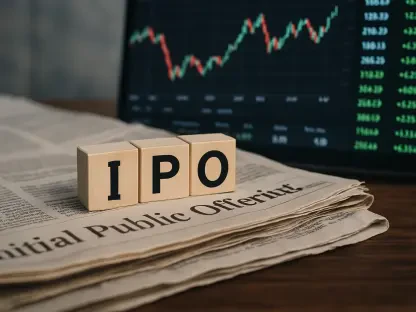Eva Lefebvre sits with Priya Jaiswal, a recognized authority in Banking, Business, and Finance, with extensive expertise in market analysis, portfolio management, and international business trends. Today, Priya will share insights into how she achieved significant financial success at a young age and provide invaluable advice for budding investors.
Can you tell us more about how you achieved $100K in non-retirement assets at such a young age?
Achieving $100K in non-retirement assets involved disciplined savings, strategic investments, and a diversified portfolio. I made regular contributions to my brokerage account and chose investments that provided a good mix of risk and reward.
What role did savings play in reaching your $100K goal?
Savings played a critical role, forming the foundational capital I needed to start investing. By consistently saving a portion of my income, I was able to build enough capital to take advantage of market opportunities and amplify my wealth through investments.
Can you break down the gains you made in the market? How much did you earn through your investments? What was your return rate?
I earned over $33K through my investments, with a return rate of 49.53%. These gains significantly boosted my overall portfolio, allowing me to reach the $100K milestone earlier than expected.
What specific investments did you include in your diversified portfolio? Which index funds did you invest in? Did you focus on any particular individual companies for stocks?
My portfolio included a mix of index funds, such as those tracking the S&P 500, and shares of individual companies. I carefully selected companies with strong growth potential and solid fundamentals, balancing them with the stability of index funds.
How did having a mix of index funds and individual company stocks contribute to your returns? What are the benefits of index funds in your experience? How do individual company stocks compare in terms of risk and potential gains?
The mix provided a balance of stability and growth. Index funds offered diversification and reduced risk by spreading investments across many stocks, whereas individual company stocks provided opportunities for higher returns but came with increased risk. This combination allowed me to benefit from both steady market growth and the potential for significant individual gains.
What advice would you give to someone who is new to deciding between index funds and individual stocks?
New investors should assess their risk tolerance and knowledge level. If you’re comfortable with some risk and can evaluate companies, individual stocks might be suitable. Otherwise, start with index funds for broad market exposure and lower risk. Consulting a financial advisor can also help in making informed decisions.
Can you share any strategies or research methods you used when selecting individual companies for investment?
I focused on companies with strong financial health, positive growth trends, and competitive advantages in their sectors. I analyzed financial statements, management performance, industry position, and market potential to make informed investment choices.
How important were your regular contributions to your brokerage account in reaching your $100K goal?
Regular contributions were essential. They allowed me to continually invest in the market, taking advantage of dollar-cost averaging and compounding returns over time, which significantly accelerated my wealth growth.
Could you explain the impact of earning $33K in returns on your ability to hit $100K? How did these returns accelerate your wealth growth?
The $33K in returns was pivotal. It significantly shortened the time required to reach $100K, demonstrating the power of investing. The returns essentially acted as a catalyst for my portfolio’s growth, highlighting how critical market gains are in building wealth quickly.
What lessons can others learn from your experience with investing and building wealth?
The key lessons are the importance of starting early, diversifying your investments, making regular contributions, and continually educating yourself about the market. Consistency and informed decision-making are crucial to long-term financial success.
What steps do you recommend for someone looking to open an investment account and start building a diversified portfolio?
Start by researching different brokerage firms to find one that offers low fees and user-friendly platforms. Begin with index funds to get exposure to the market, and gradually add individual stocks as you gain more knowledge and confidence. Regular contributions and keeping an eye on your portfolio’s performance are also important.
How can investing in the stock market help individuals achieve financial freedom?
Investing in the stock market allows individuals to grow their money beyond what savings accounts offer. By reinvesting returns and benefiting from compound growth, investment portfolios can significantly outpace inflation and provide a path to financial freedom and wealth accumulation over time.
What role do you think a financial advisor can play in helping someone determine their best investing strategy?
A financial advisor can provide personalized advice based on one’s financial goals, risk tolerance, and time horizon. They help create a tailored investment strategy and offer insights into market trends and opportunities, ensuring that investments align with one’s broader financial plan.
Can you describe the process of finding and working with a financial advisor?
Start by seeking recommendations or using tools that match you with vetted advisors. Check their credentials, experience, and approach to ensure they align with your goals. The initial consultation should focus on discussing your financial situation and objectives, and determining how they plan to help you achieve them.
What are the key factors to consider when choosing a financial advisor to ensure they act in your best interests?
Look for fiduciary advisors who are legally obliged to act in your best interests. Consider their experience, specializations, fee structure, and client reviews. Transparency, communication style, and a willingness to educate you about your options are also important.
Is there anything specific that you wish you had known earlier in your journey to $100K in non-retirement assets?
I wish I had started investing even earlier and been less conservative initially. Understanding the importance of taking calculated risks and the benefits of compounding returns earlier on could have accelerated my journey to $100K.
From your experience, how important is it to start investing early in life?
Starting early is crucial as it allows you to benefit from compound interest over a longer period. Early investments mean you can weather market fluctuations, take advantage of long-term growth, and achieve financial milestones sooner.
What advice would you give young investors who are just starting out on their financial journey?
Begin with education; learn about different investment options, risks, and market dynamics. Start investing early, consistently contribute to your investment accounts, and prioritize diversification. Don’t be afraid to seek advice from financial professionals and stay committed to your financial goals for long-term success.









